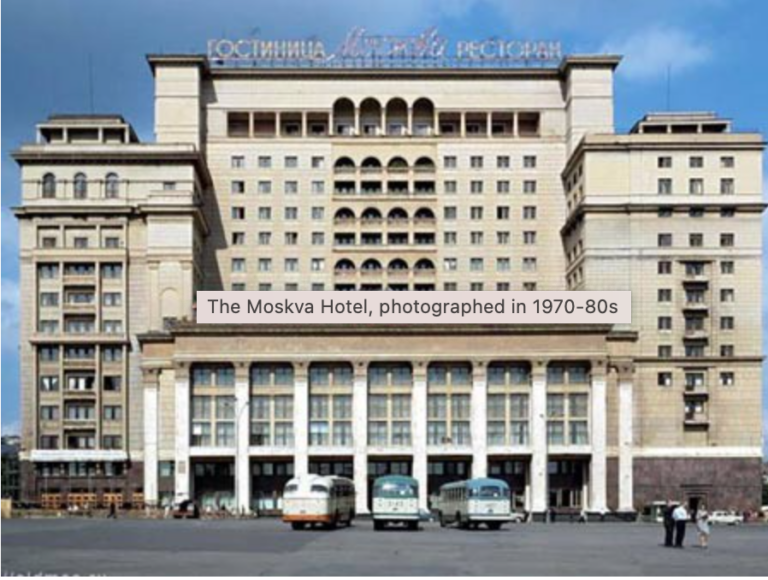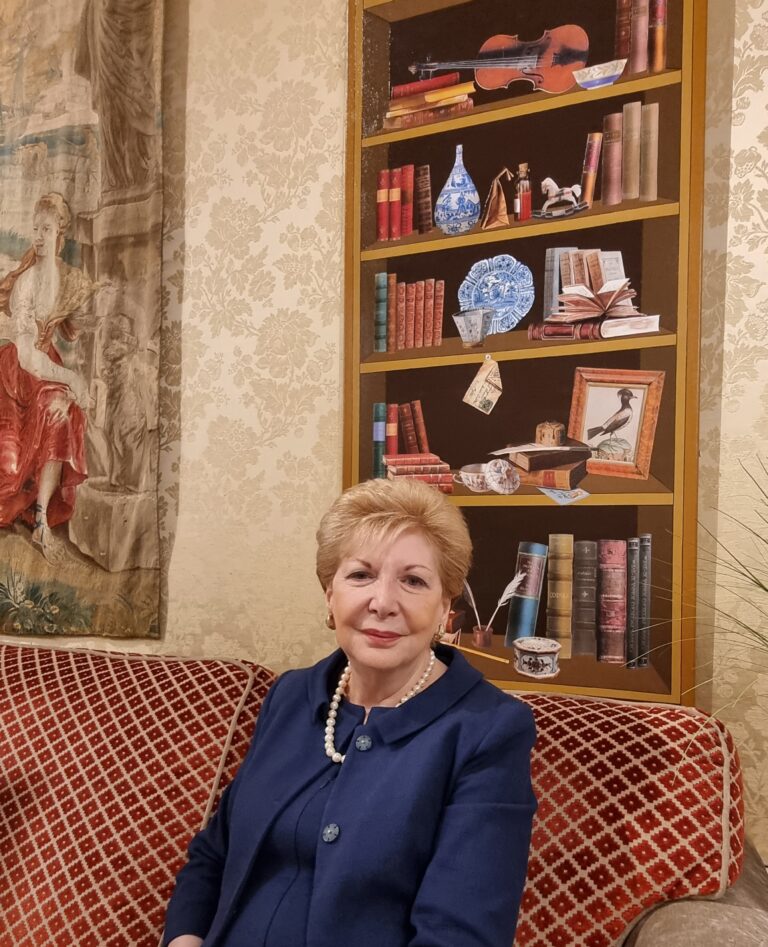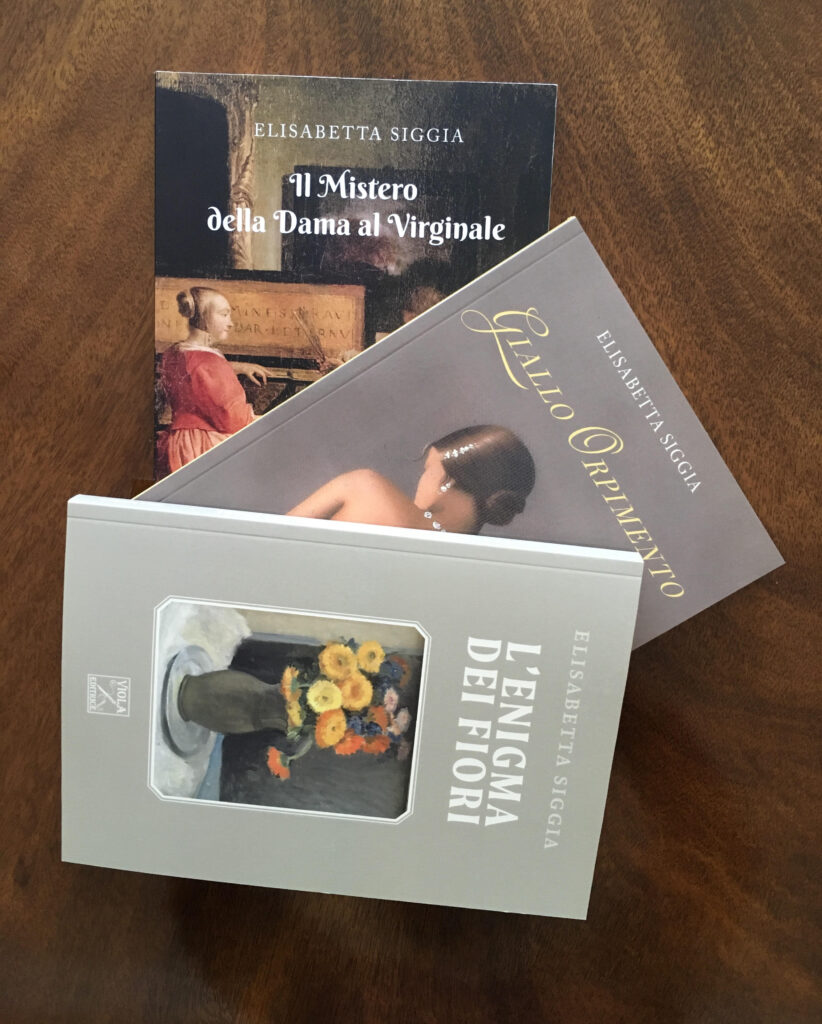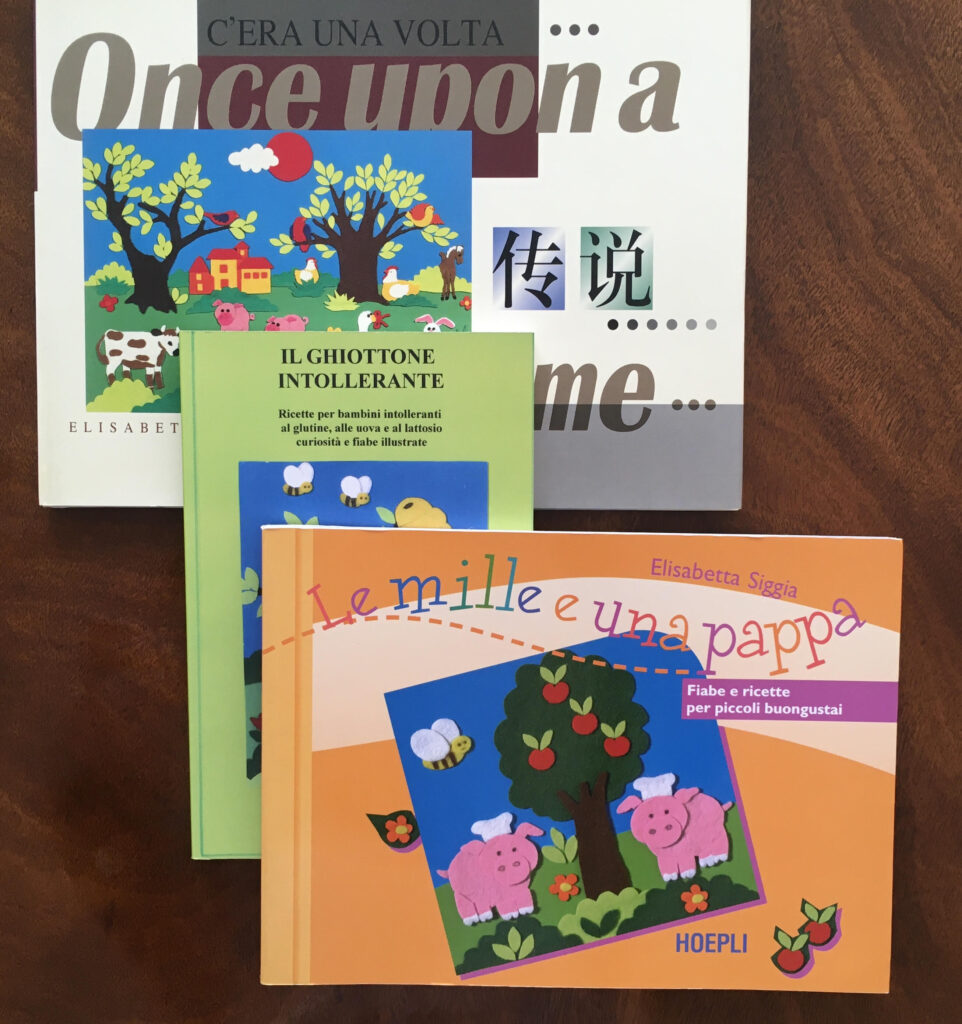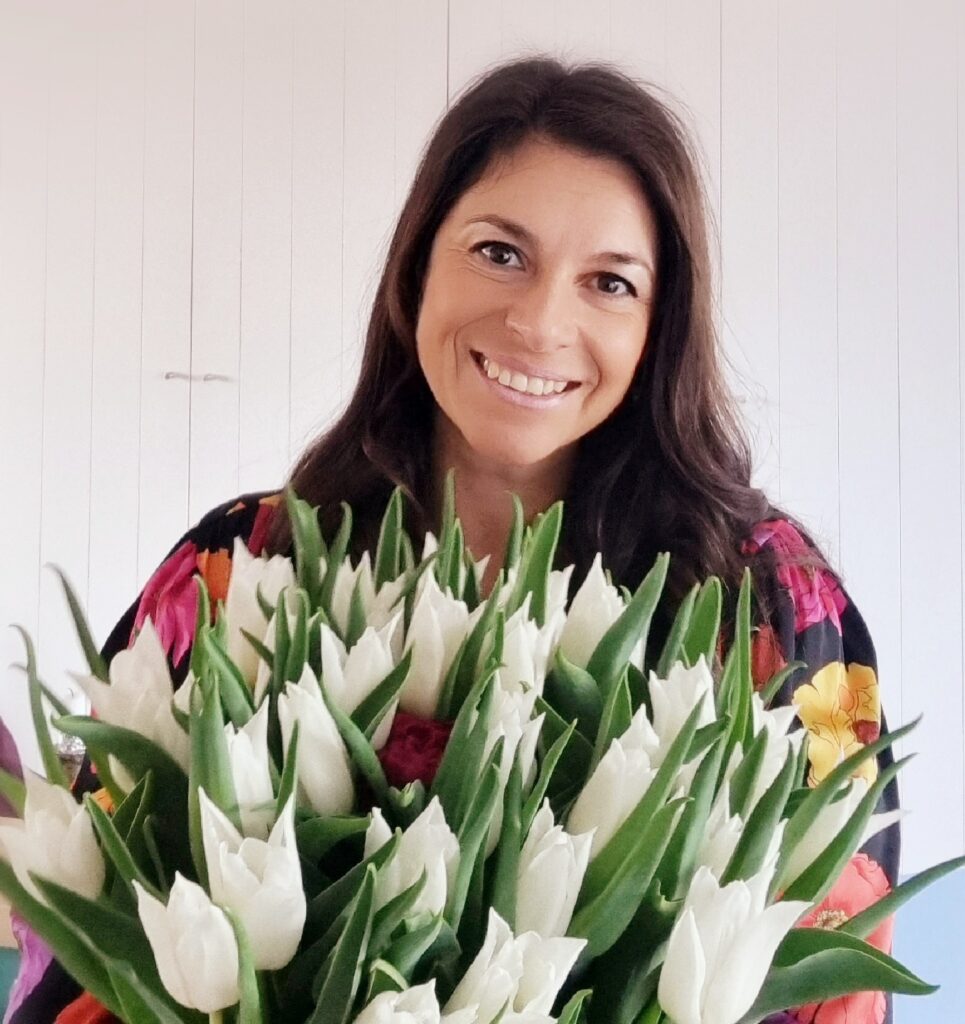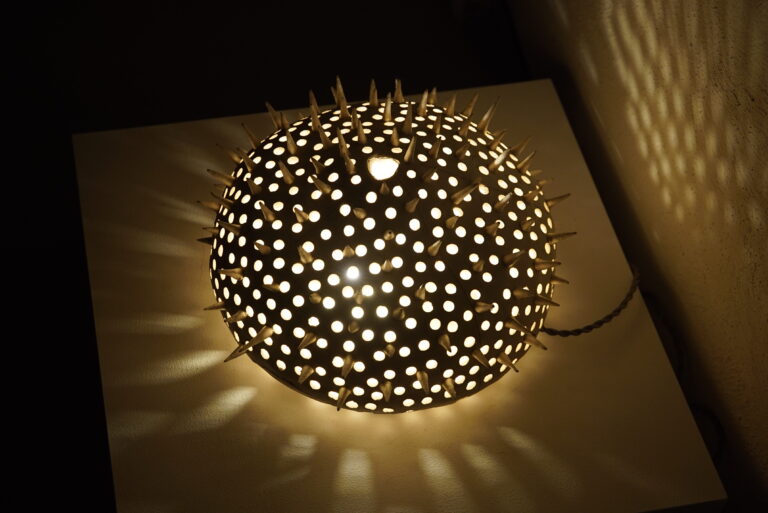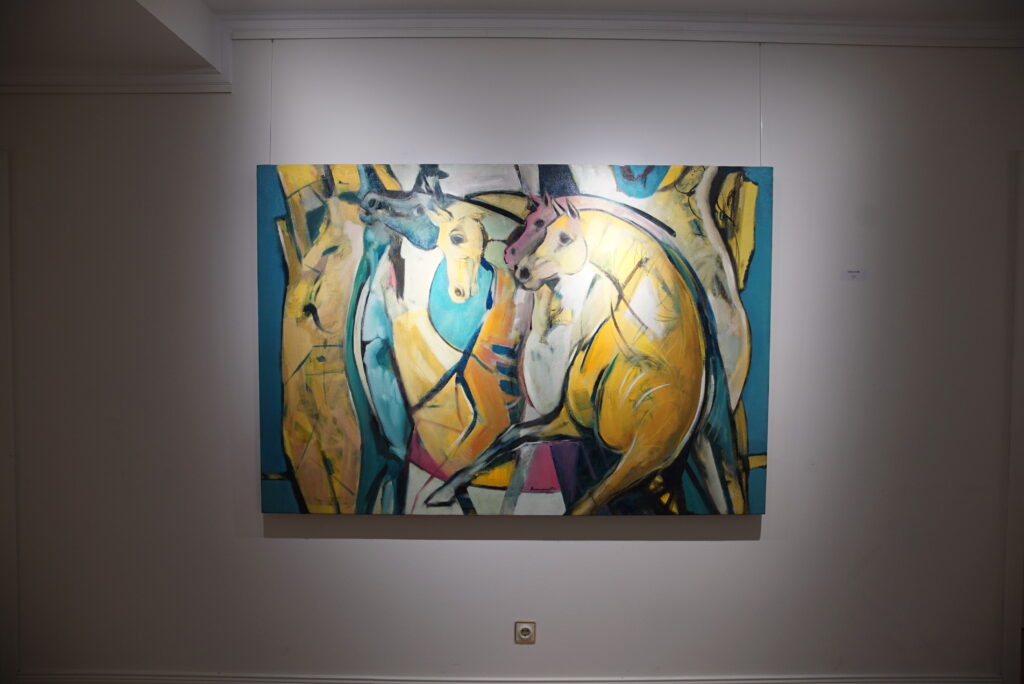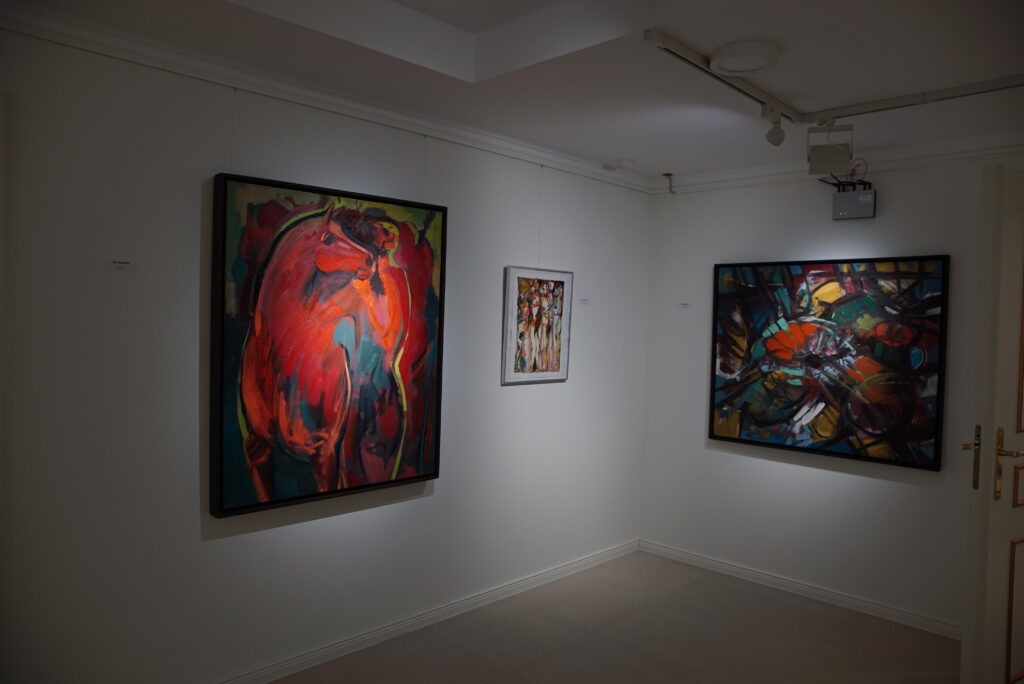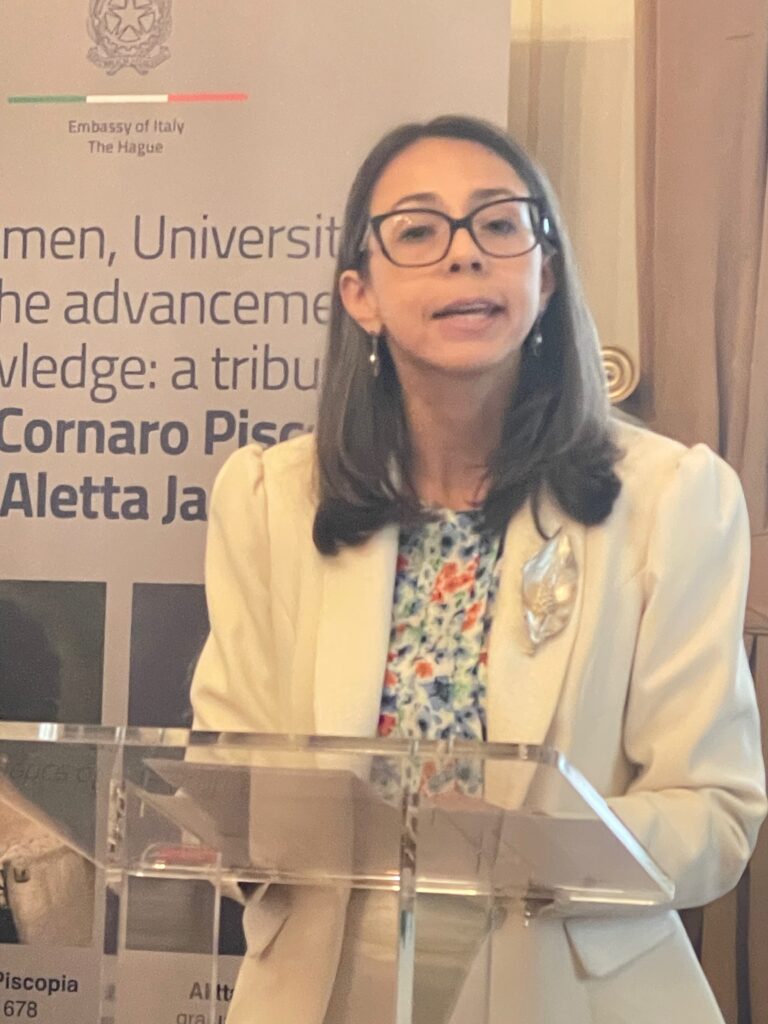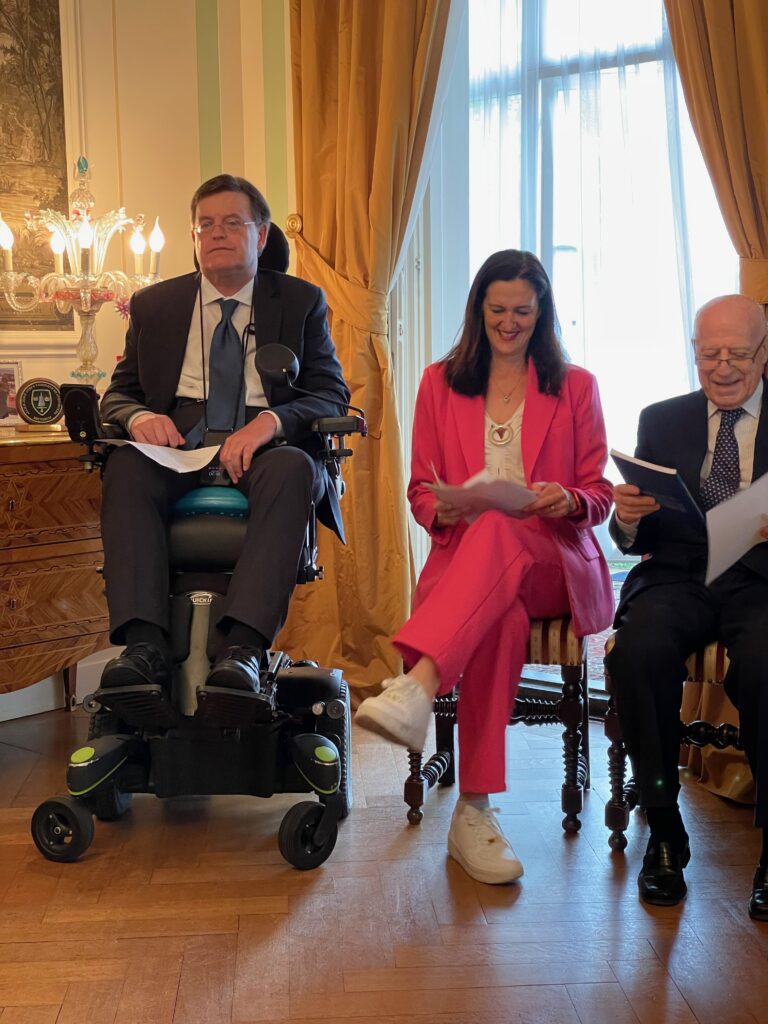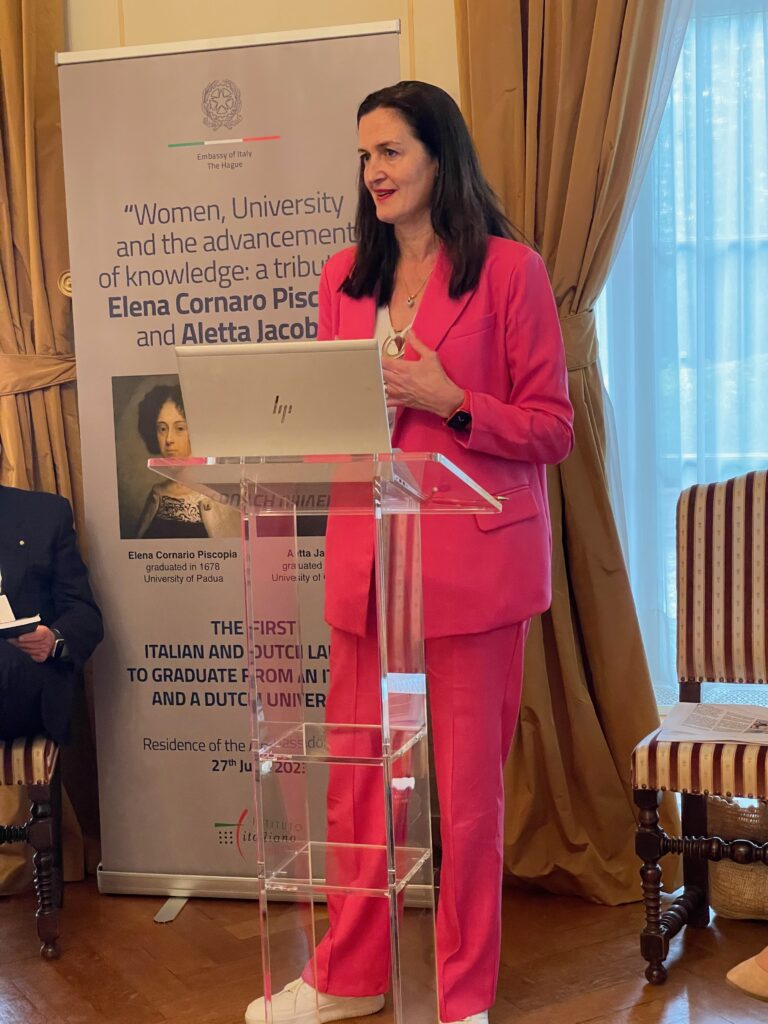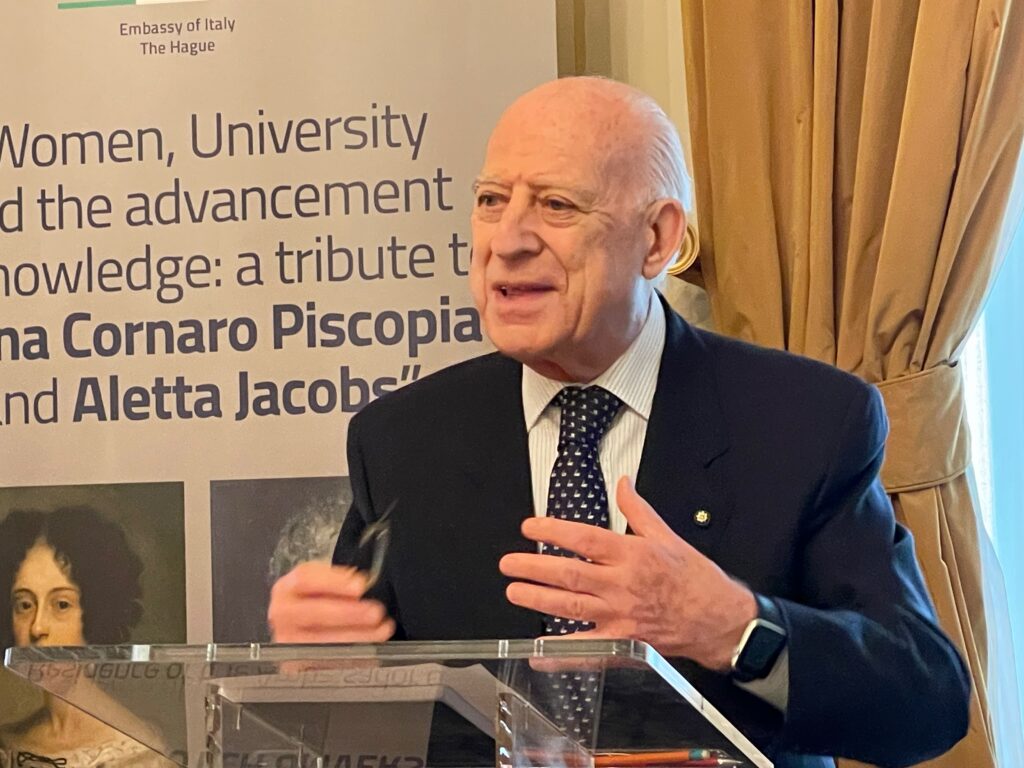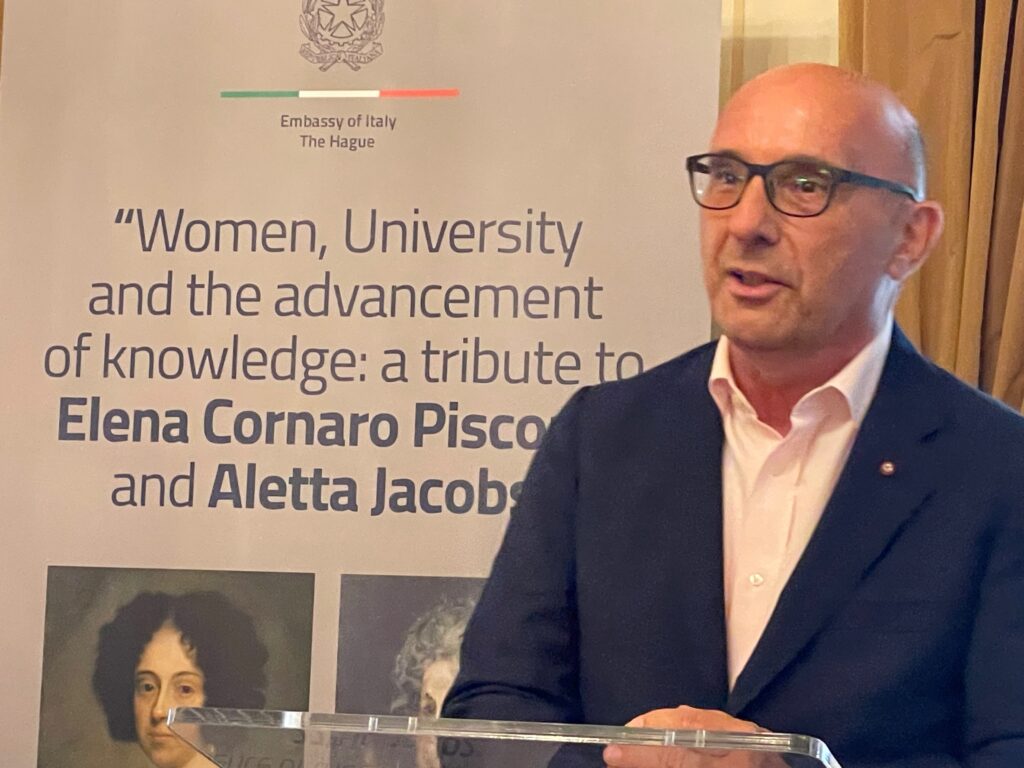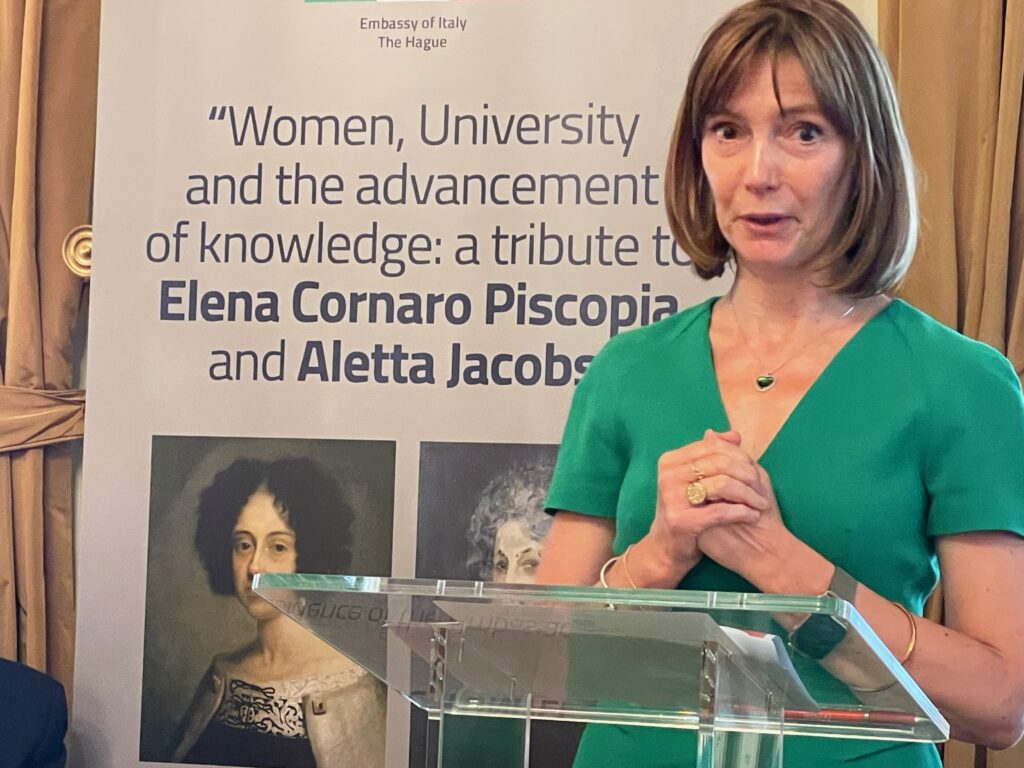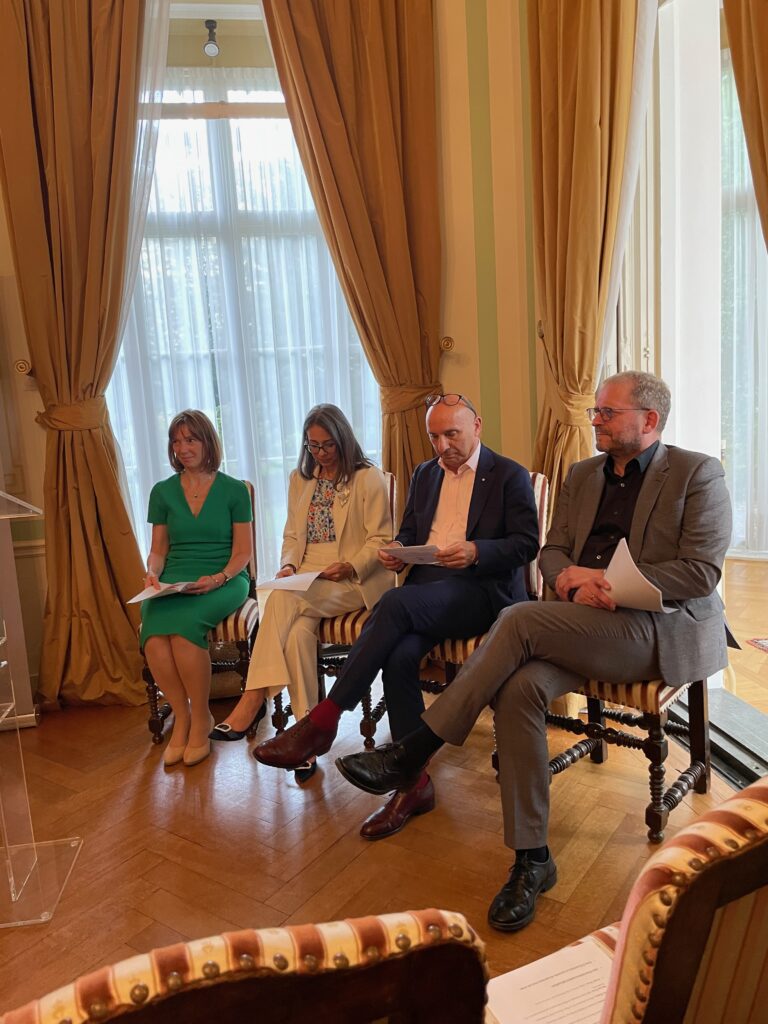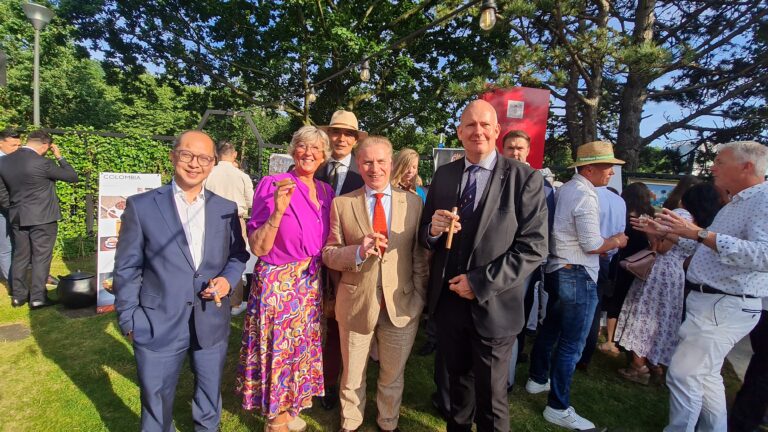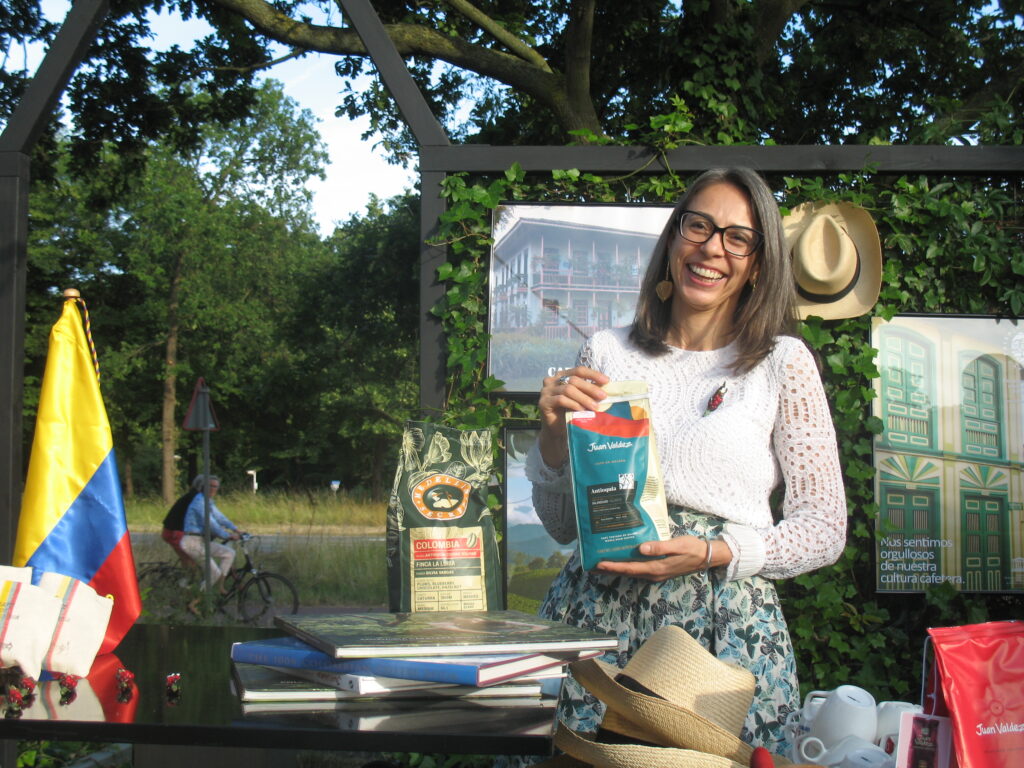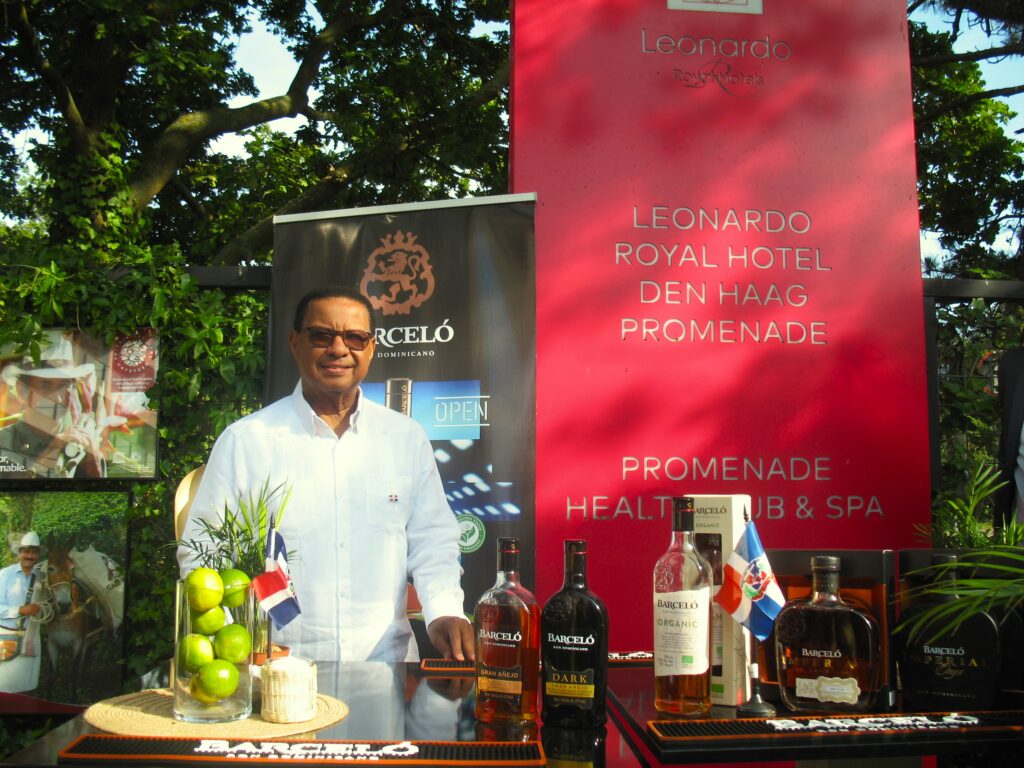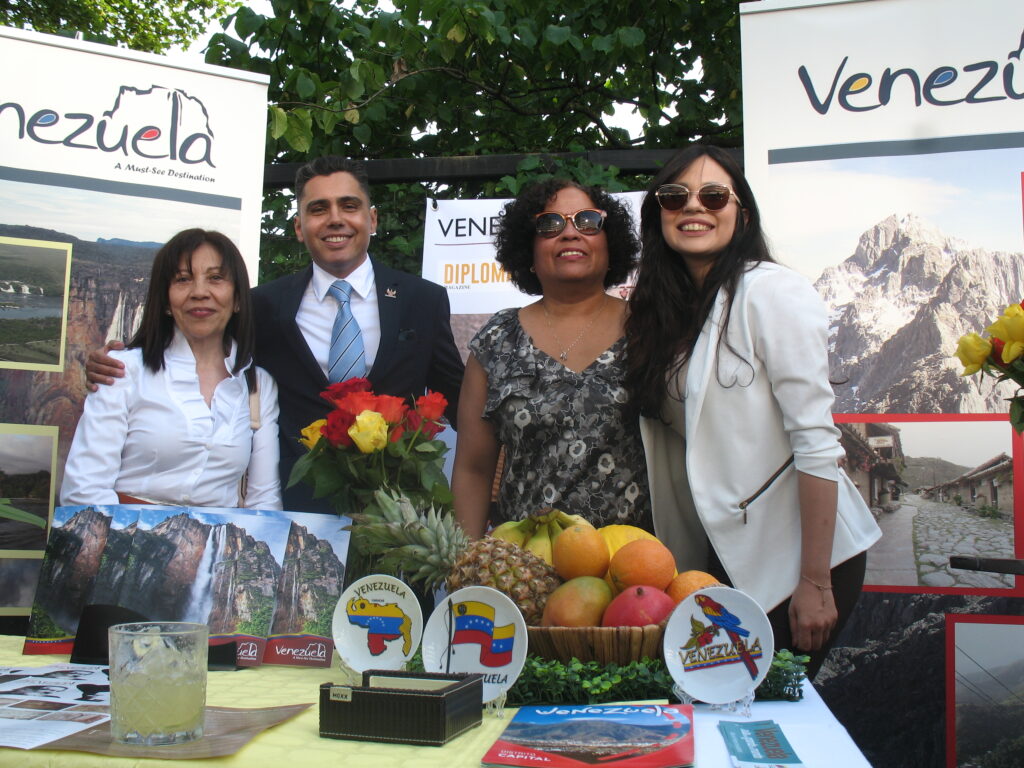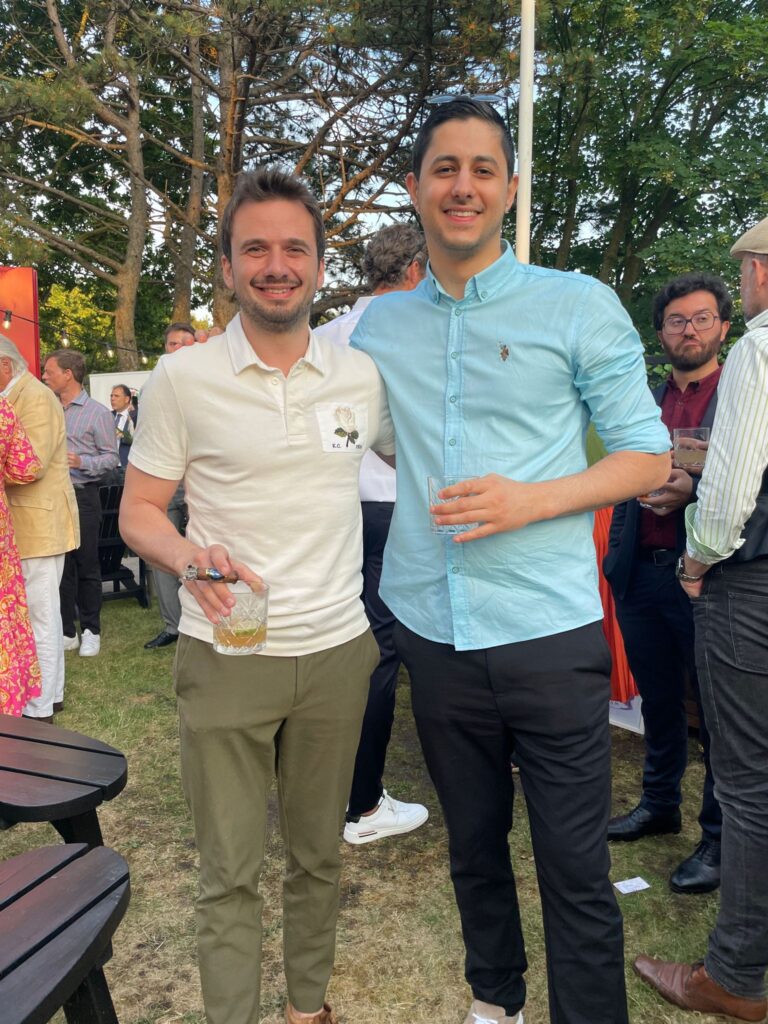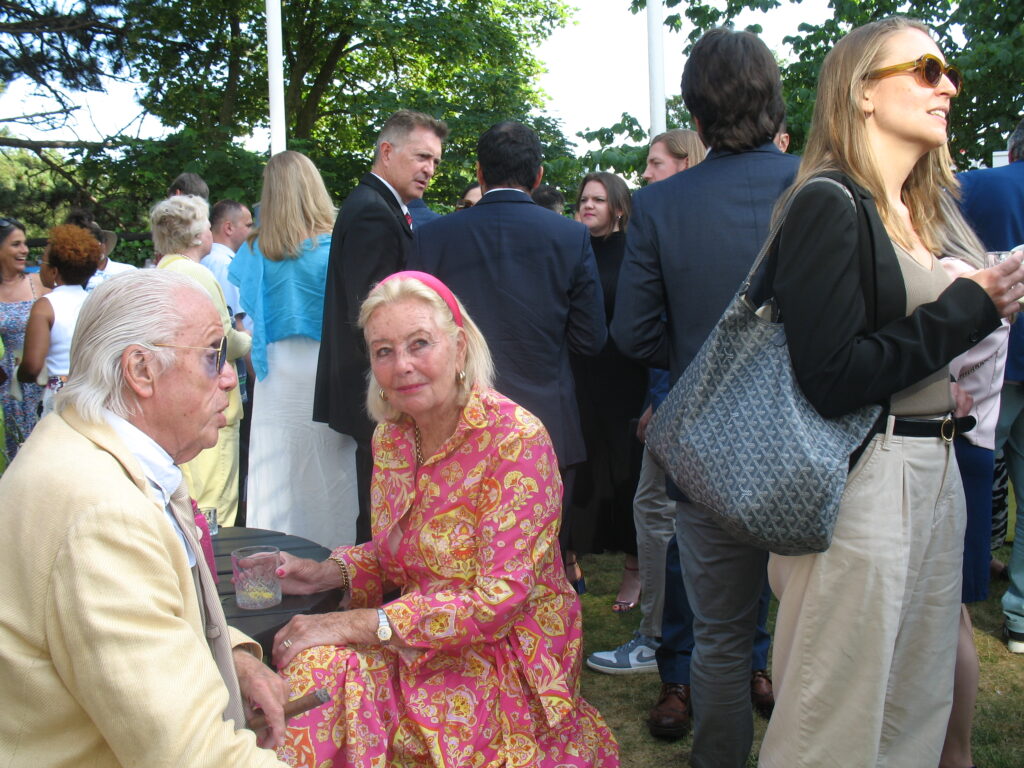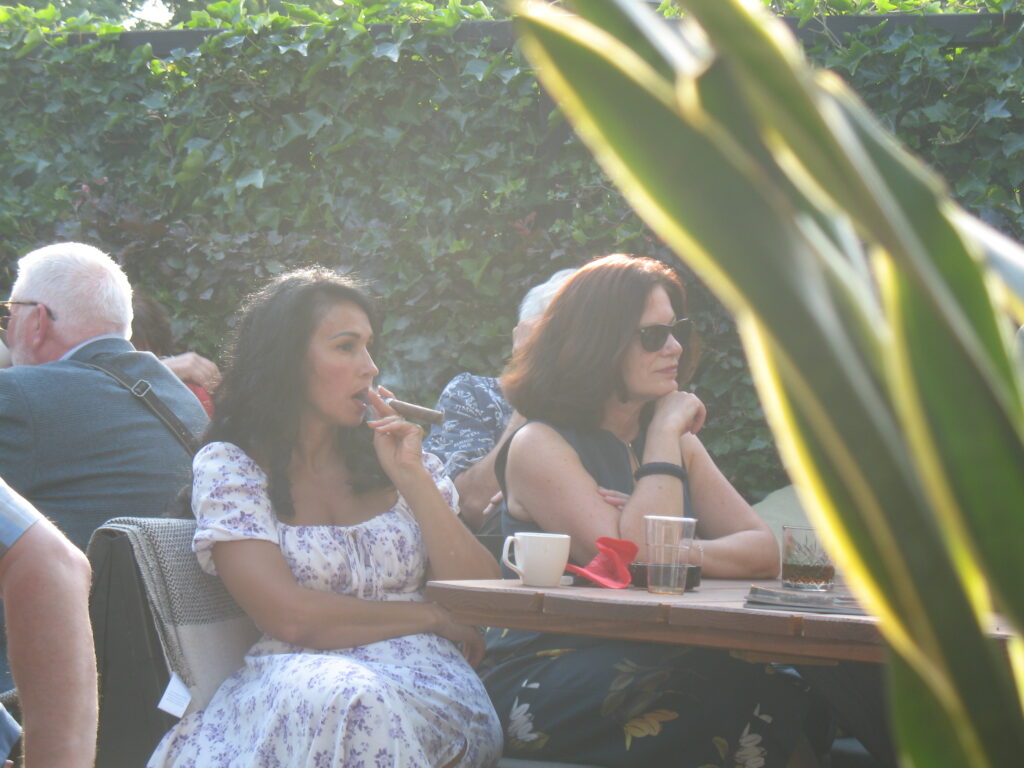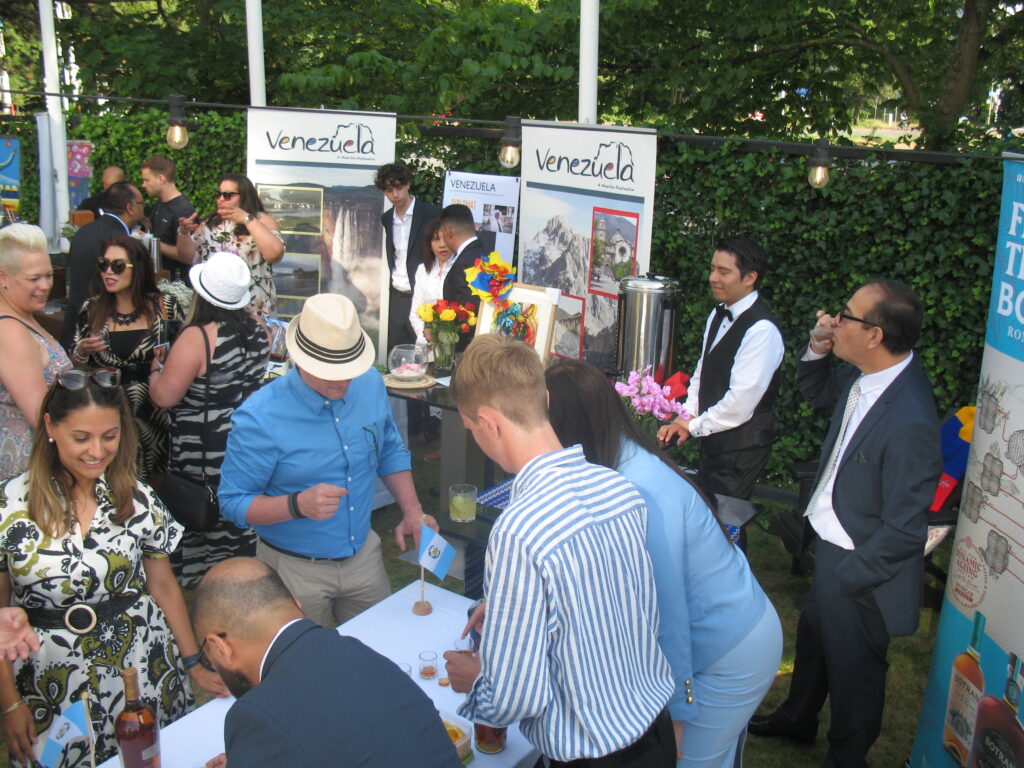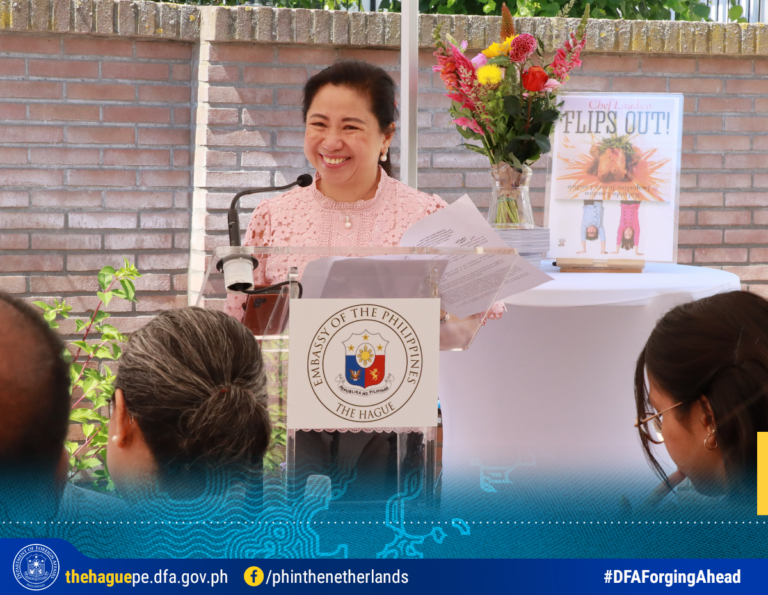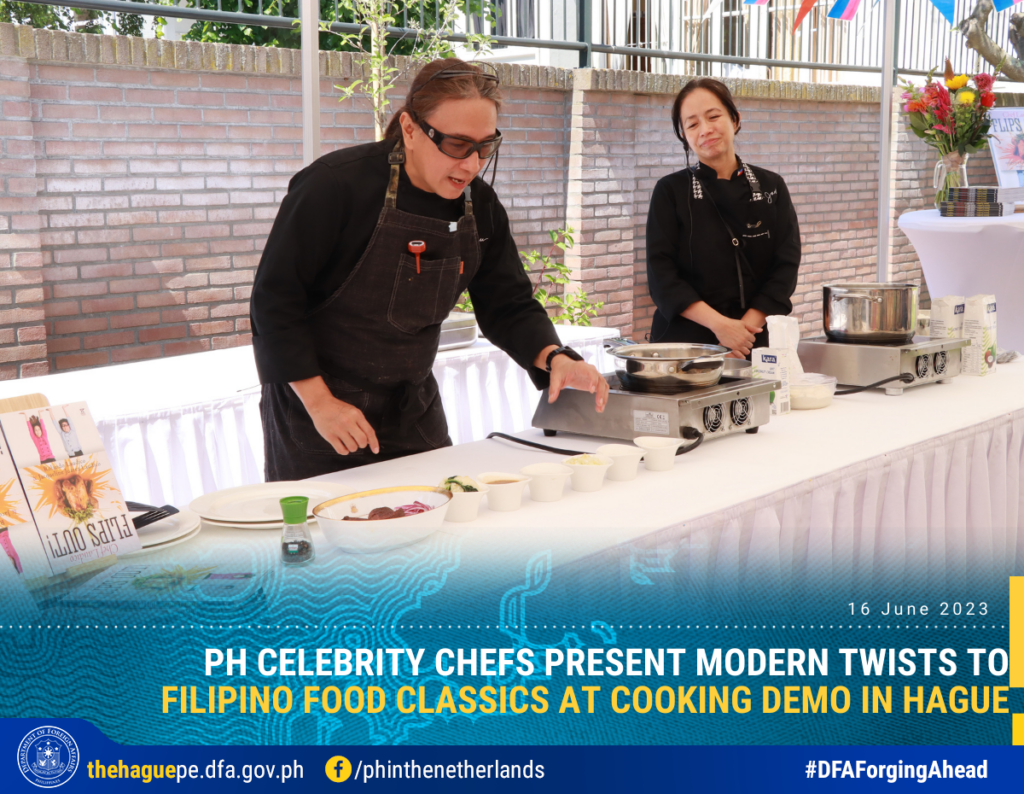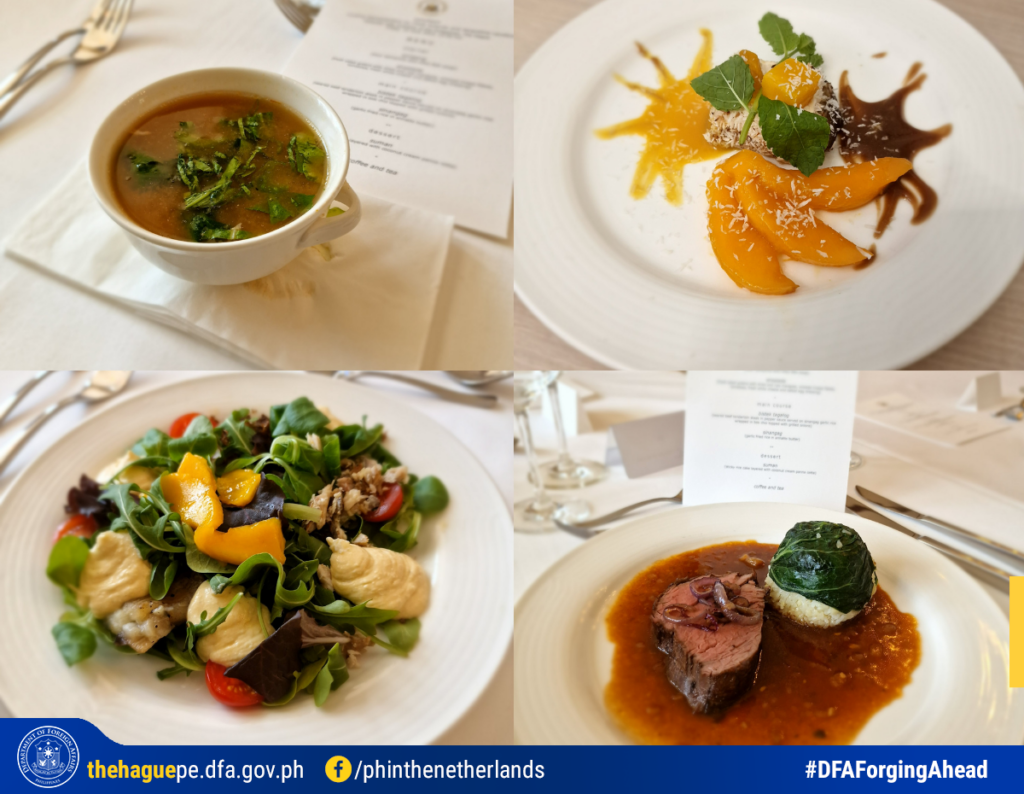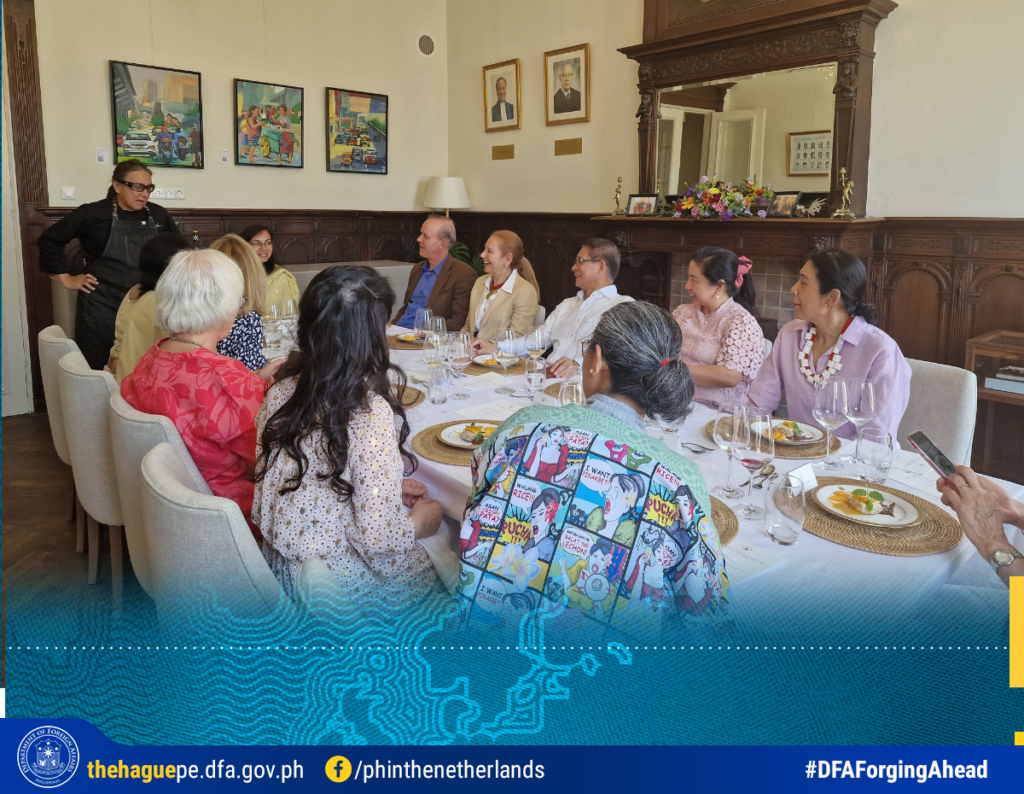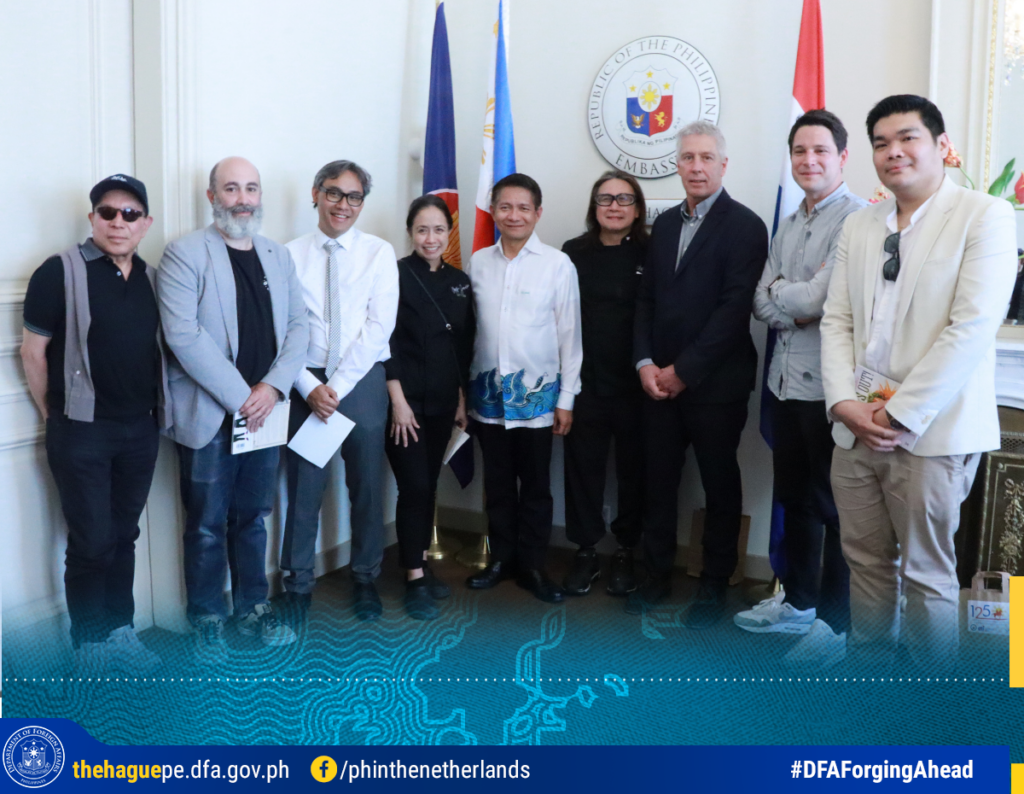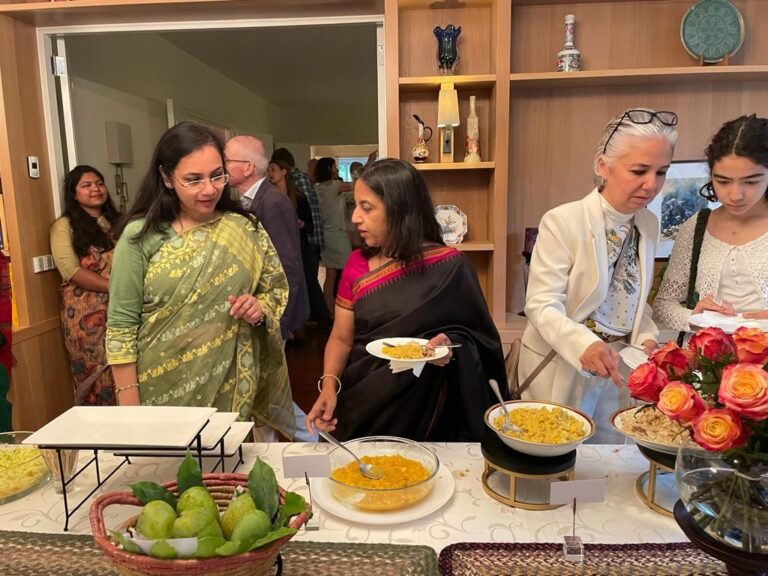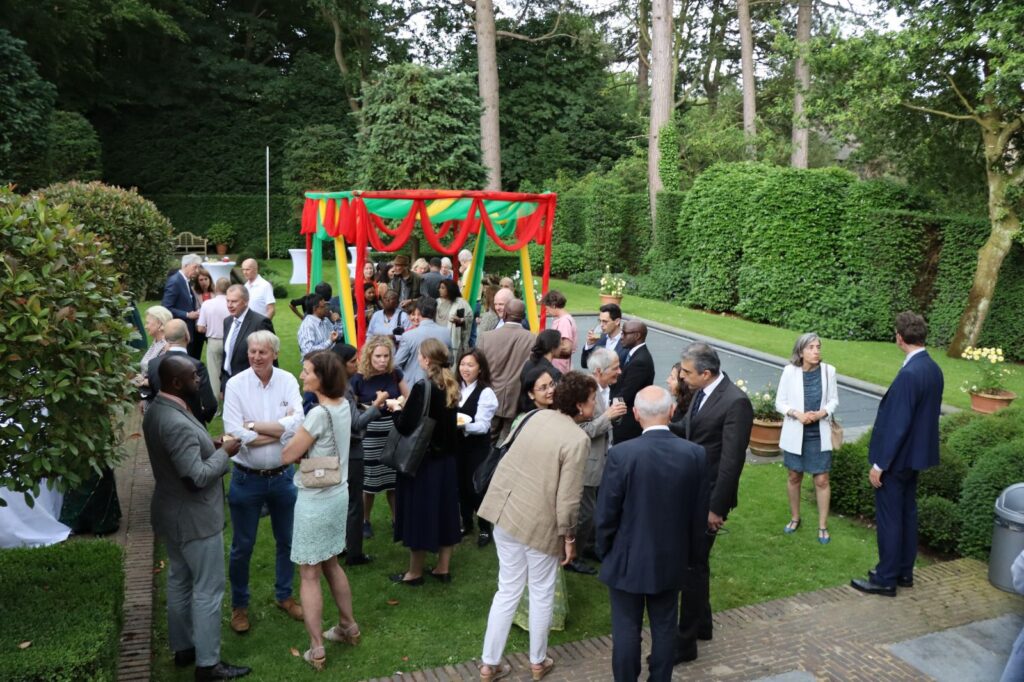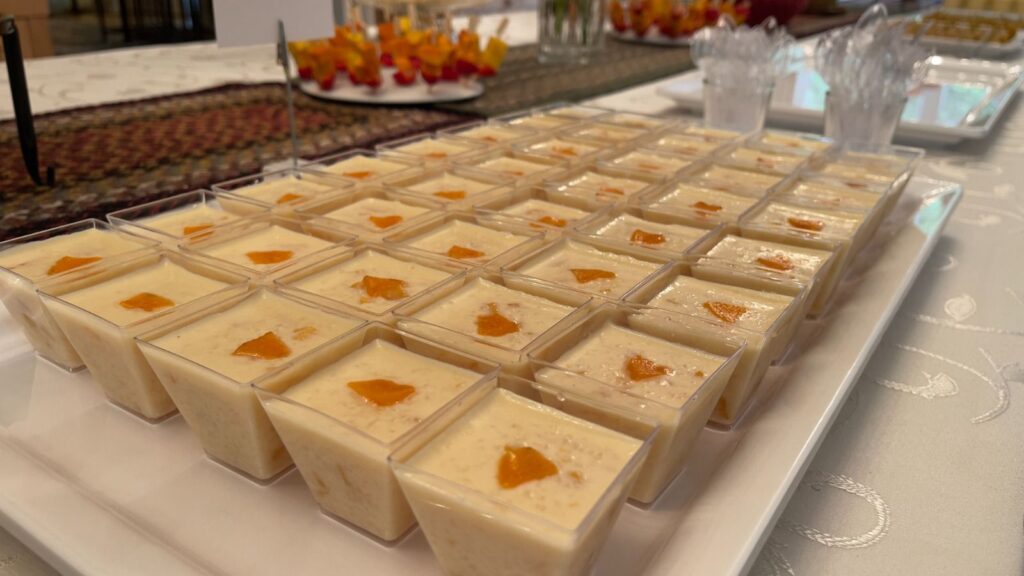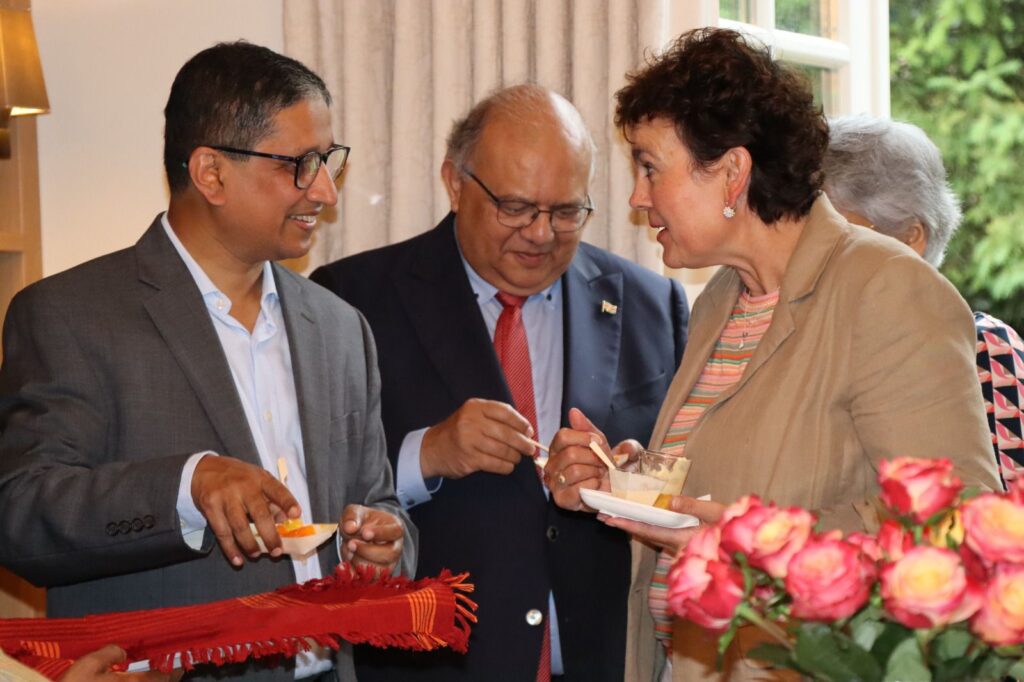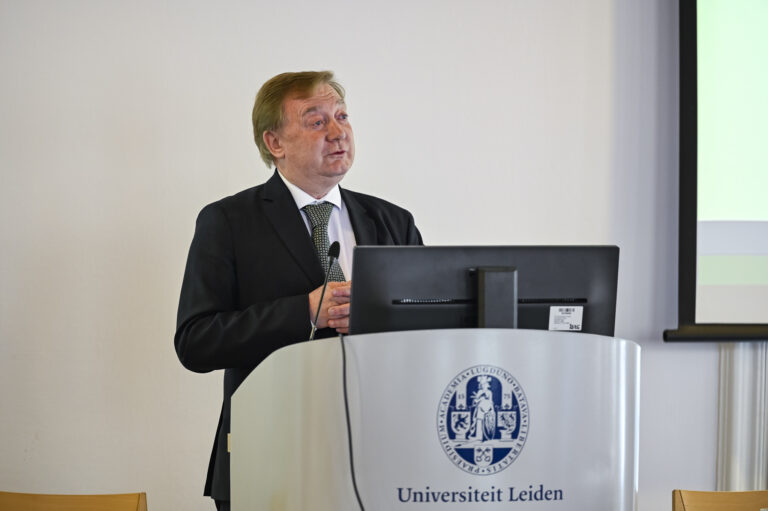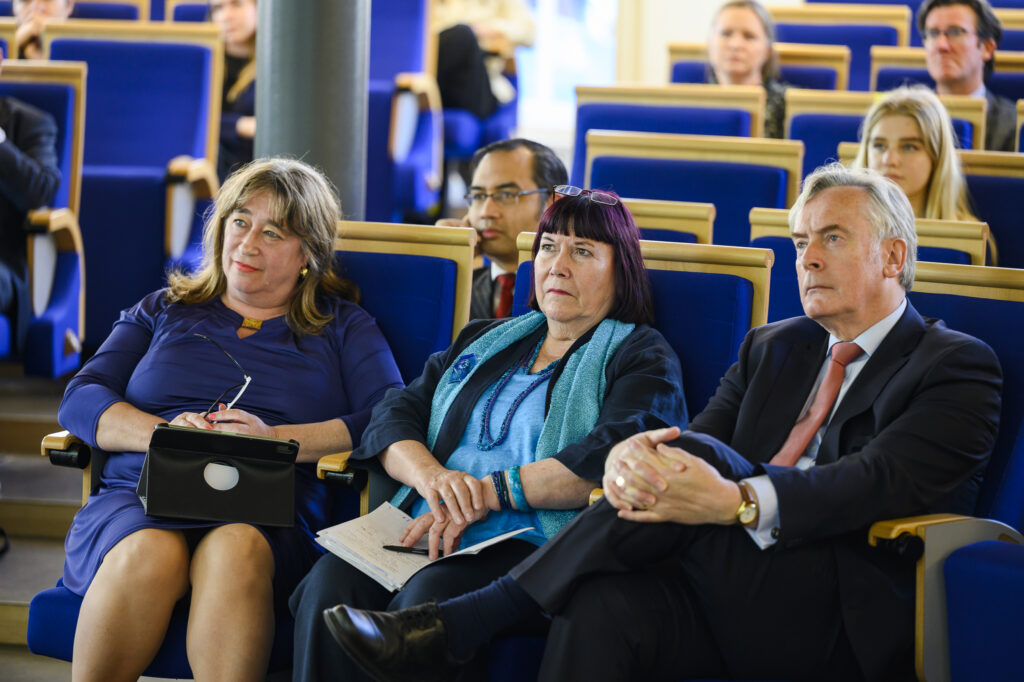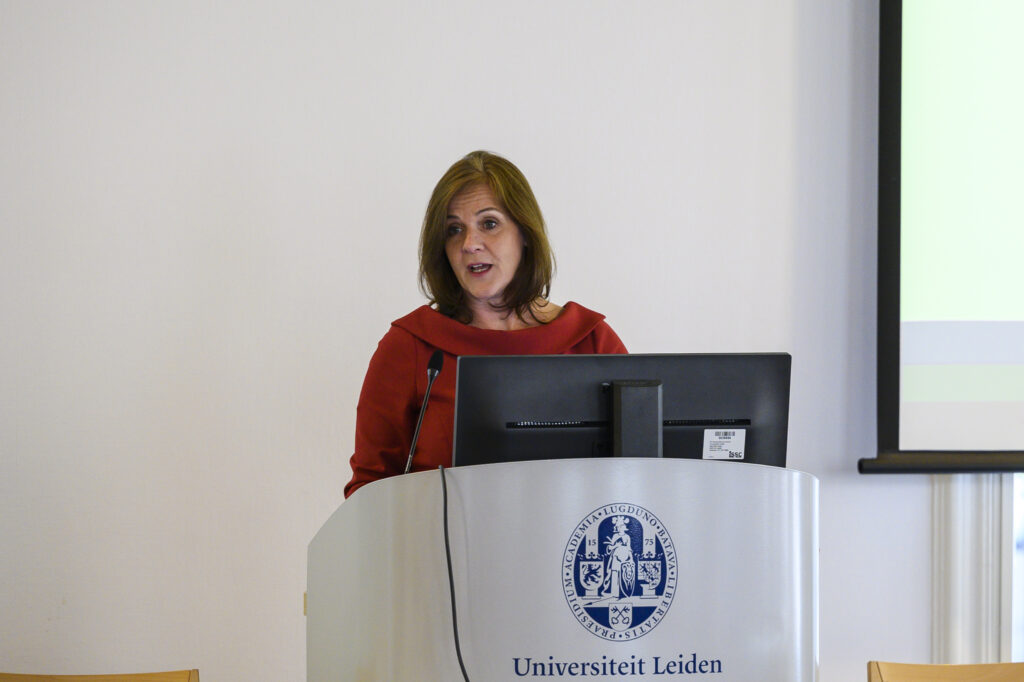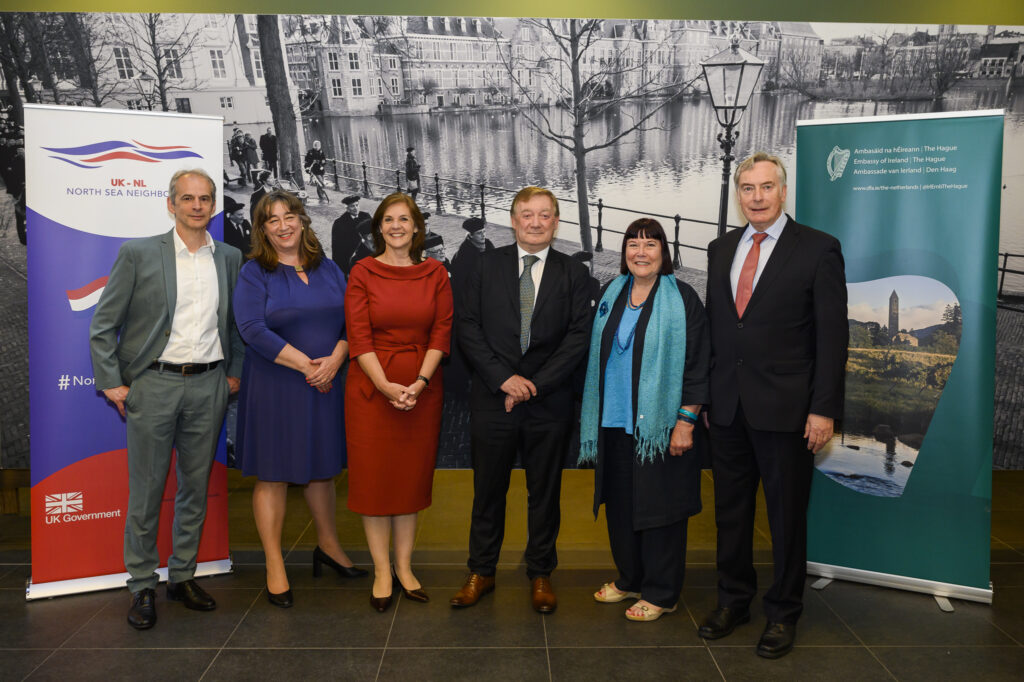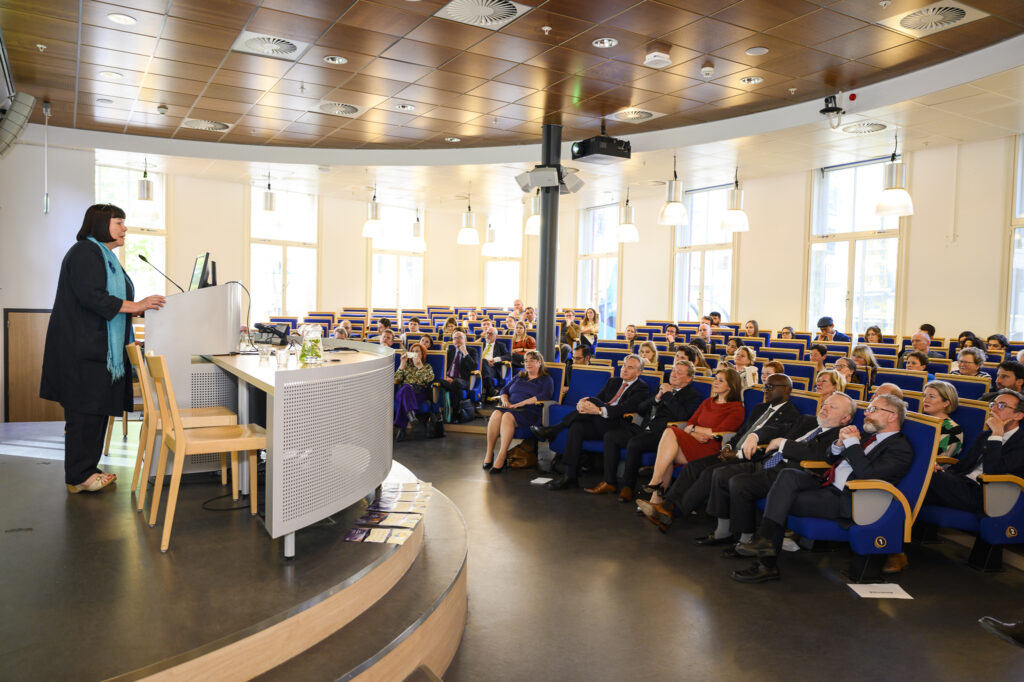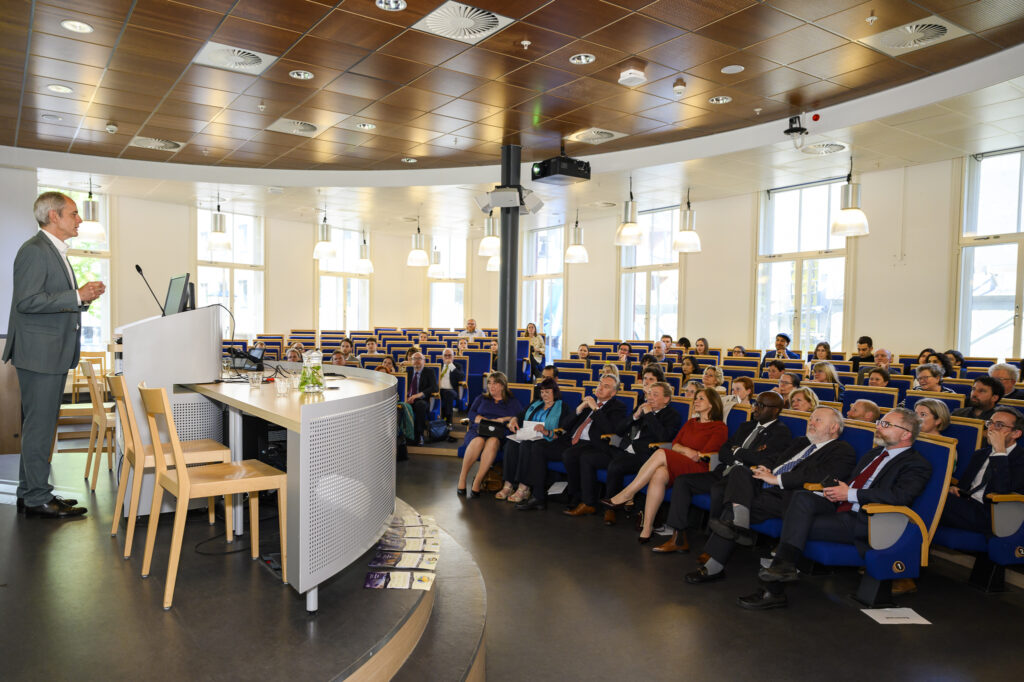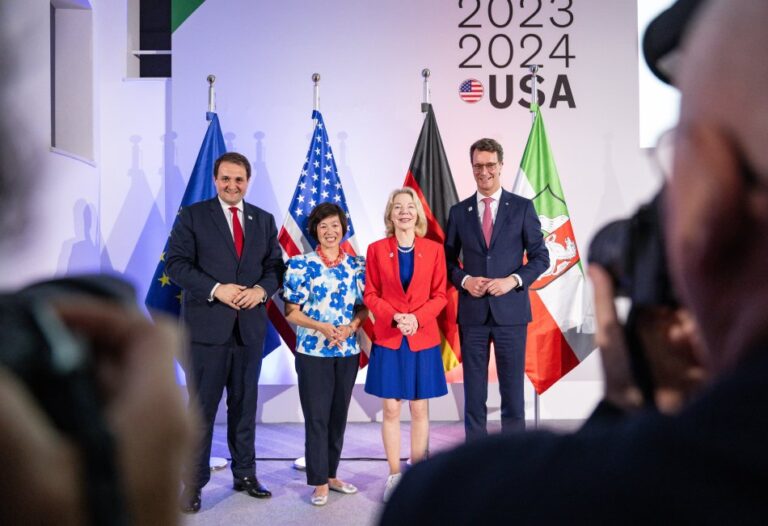By Professor Richard T. Griffiths
There are not many two-faced buildings in the World. One of the best-known is the former Moskva hotel that was built in Moscow in the 1930s. As you can see in the photograph, the layout of the two wings of the building are completely different. The building, on the site of an existing hotel had already started when a sea-change occurred in Soviet architecture.
Stalin had never liked the modernism of the early Bolshevik artists and architects and, in the early 30s swung towards a more classic style. In 1931, the architect Alexey Shchusev was commissioned to redesign the whole building. Legend has it that he presented Stalin with two alternatives for the exterior. When Stalin signed-off his approval, the signature was in the middle of the document, so that it was unclear which he preferred. The solution – build both!

The truth, however, is rather more prosaic. Weaknesses in the structure of the former building incorporated into the new structure required a more substantial structure. Shchusev was temporarily disgraced in the purges of 1937 but survived to die a natural death in 1949. The Moskva Hotel was demolished in the Four Seasons Hotel Moscow was erected on the site – maintaining the asymmetry of the original.
This excursion into quirky hotel architecture is not prompted by nostalgia for my visits to frequent Moscow in 1990s and early 2000s, although you could hardly miss seeing it on visits to Red Square.
Rather, it was prompted by the research I was undertaking for the Venice site in the Silk Road Virtual Museum. If you look closely at the façade of the Doge’s Palace overlooking the lagoon in Venice, you will see that it too is asymmetrical – the two upper floor windows on the right are placed lower and are more ornate, and above them, square windows have been added, in addition to the round ones on the rest of the frontage.
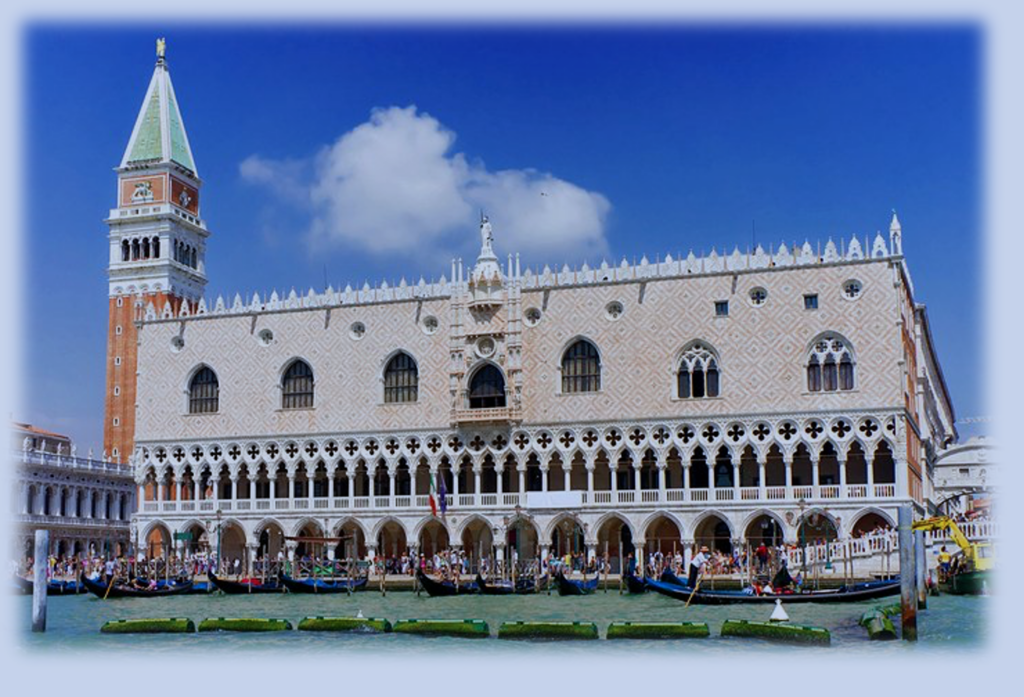
In this case the answer was easy. The architect Filippo Calendario was hanged on 16 April 1355 from the balcony of his uncompleted building.. It was not because he was a bad architect, nor because he was fraudulent. It was because….
It is easiest to explain, if we start at the beginning. Venice was a republic, in contrast with the nobility that rules all the other city states in Italy at the time. However, it was a republic but only in the sense that a small elite of noble families were allowed to participate in the elections of their leader, the Doge. There was always a friction between the powers of the Doge and those of the Great Council that had elected him. In the background there was also the Council of Ten, charged with investigating and preventing plots against the state.
In 1297 the decision was taken to significantly increase in the number of people who had the right to participate in meetings of the legislative assembly meetings. This meant that the existing buildings were too small and it was decided to redesign the entire site, starting with the frontage facing the lagoon. Filippo Calendario was the architect in charge. Building on the new site started in 1340. We know little about Filippo, him than the fact in that year that he owned two boats for transporting stone to the site, and that a year later he had acquired three more. I know that this fact carries with it a whiff of corruption, but that was not the reason for his demise.
In 1348 work on the palace were suspended for several years when Venice was struck by the plague that went on to wipe out one third of Europe’s population. Such events often lead to unease and unrest among the population, but disquiet with the ruling elite increased in November 1354 when the city suffered a naval defeat at the hands of its arch rival, Genoa. Two months earlier, the Grand Council had elected a new Doge, the eighty-year-old Marino Faliero. Interspersed with other high-points of his career, he had served frequent stints in the Council of Ten. Judging the mood of the city ripe for rebellion, he conceived a conspiracy of his own. On 15 April, he would announce an impending Genovese naval attack on the city. Amid the ensuing panic, the conspirators, including his architect Filippo, would murder the leading patricians in the city. Marino Faliero would then declare himself sole leader, and saviour, of the city.
News of the plot conspiracy had leaked. The Council of Ten acted fast and rounded up the conspirators. Justice was swift. Ten conspirators were sentenced to death and hanged the following day. Marino Faliero was beheaded on the steps oof the palaceon 17 April 1355. There is a saying that ‘revenge is a dish best served cold’. Marino Faliero was buried in an unmarked grave, with his head placed between his legs. His portrait in the Grand Council Hall was painted over in black and adorned with a banner reading Hic est locus Marini Faletro decapitati pro criminibus (This is the space reserved for Marino Faliero, beheaded for his crimes). Filippo Calendario’s building was completed by a architect with different ideas on exterior design.
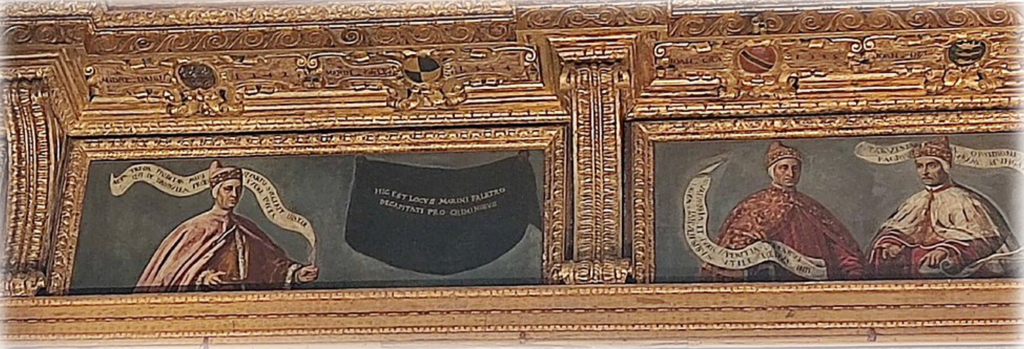
To see the artistic treasures of Venice from these times, please visit the Silk Road Virtual Museum at https://silkroadvirtualmuseum.com. If you know of any other two-faced buildings please get in touch with the editors of the Diplomat Magazine.

